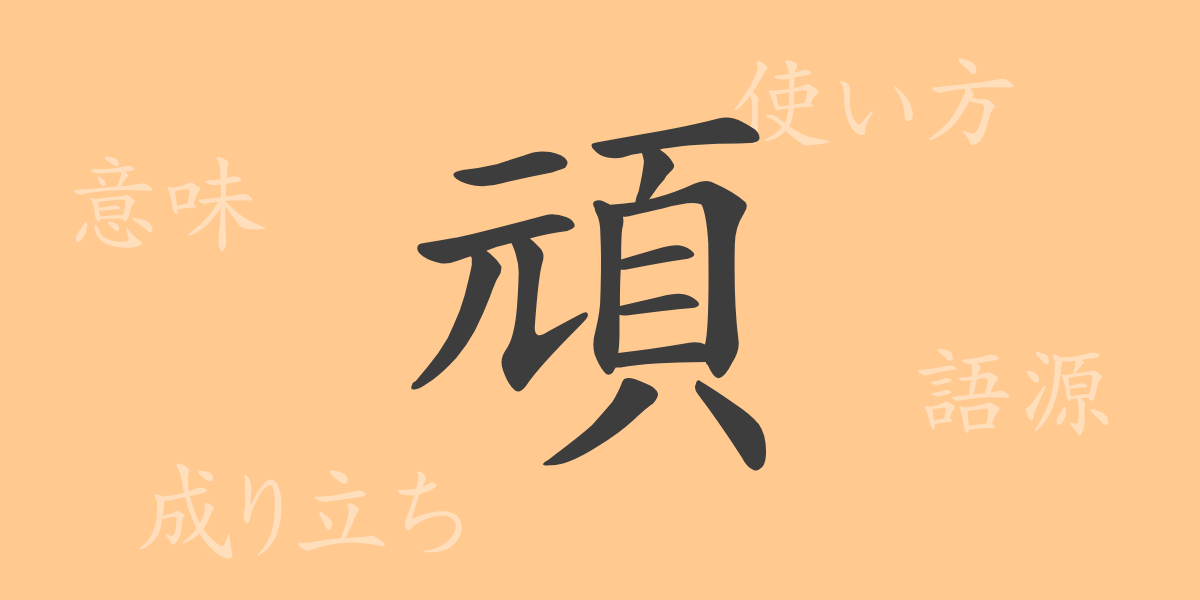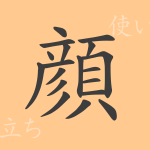The commonly used Kanji characters in Japan, known as “Jōyō Kanji” (常用漢字), are a collection of characters frequently used in daily life. Among these, there are Kanji with deep meanings that symbolize the psychology and behaviors of the Japanese people. “Gan” (頑) is one such Kanji, often used to express the perseverance and strong will of the Japanese. This article delves into the Kanji “Gan” (頑), exploring its origins, meaning, usage, and related phrases to uncover its allure.
The Origins (Etymology) of Gan (頑)
The Kanji “Gan” (頑) originates from ancient China and is thought to have derived from the word “Kei” (頚) which means a part of the neck. Originally, it was a pictograph resembling the shape of a head, symbolizing a stubborn nature or unchanging quality. Over time, it has come to be used as a general adjective meaning stubbornness or obstinacy.
The Meaning and Usage of Gan (頑)
The primary meanings of “Gan” (頑) include “stubborn” and “obstinate,” referring to a quality of having a firm will and being less influenced by others’ opinions or changes in circumstances. However, it also has a positive aspect, as it can signify not giving up and continuing to strive in the face of difficulties. In terms of usage, it is combined with various adjectives and verbs such as “Ganba-ru” (頑張る), “Ganko -na” (頑固な), and “Ganjō -na” (頑丈な).
Reading, Number of Strokes, and Radical of Gan (頑)
The Kanji “Gan” (頑) has specific readings and structure.
- Readings: The On’yomi (Sino-Japanese reading) is “Gan,” and the Kun’yomi (native Japanese reading) is “Katakuna.”
- Number of Strokes: “Gan” (頑) has a total of 13 strokes.
- Radical: The radical of “Gan” (頑) is “Page” (頁), also pronounced “Ōgai.”
Phrases, Idioms, and Proverbs Using Gan (頑) and Their Meanings
There are various phrases, idioms, and proverbs that include “Gan” (頑), such as:
- Ganba-ru (頑張る): To face difficulties and continue to make an effort until the end.
- Ganko Ittetsu (頑固一徹): To stick to one’s opinion or claim without changing it until the end.
- Ganjō- na (頑丈な): For something to be very sturdy and hard to break.
- Ganmei Korō (頑迷固陋): Being stubborn and old-fashioned, unwilling to accept new ideas.
Conclusion on Gan (頑)
The Kanji “Gan” (頑) not only conveys negative connotations such as stubbornness and obstinacy but also embodies the positive aspects of a strong will and perseverance in the face of difficulties. This Kanji, deeply rooted in Japanese national character and culture, showcases the richness of expression in the Japanese language. Through everyday phrases and idioms, we can reacquaint ourselves with the profound meanings held by “Gan” (頑).

























